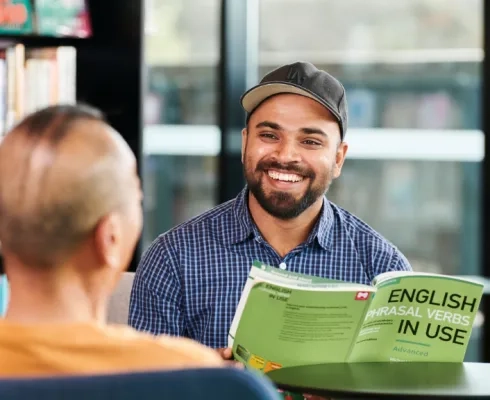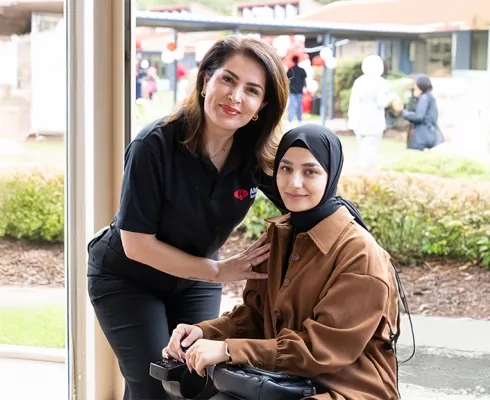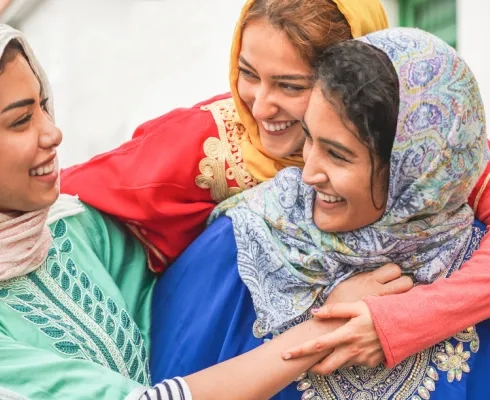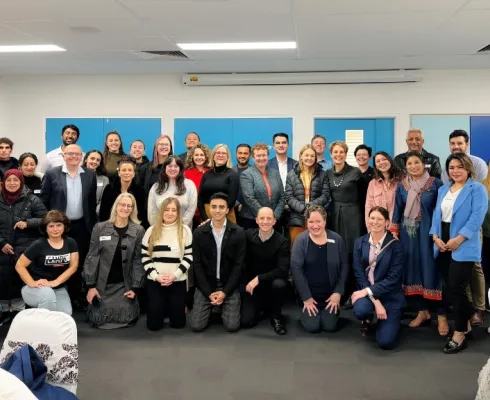Karen-Burmese refugee Kaw Doh Htoo was forced to flee his home three times. Chased out by the Burmese army who burned down his village, he spent almost a decade in a refugee camp in Thailand.
Now, after rebuilding his life in Australia he has become a leader and inspiration to his community and has opened his own business.
“I am a Karen from Burma but I had to leave my country because of the civil war there. The Burmese military burned our villages and we had to flee,” Kaw Doh said.
“Three times I was forced to leave my home and finally we had to leave the Karen state – the place we call ‘Kaw Thoo Lei’ - our mother land,” he said.
“We crossed the border into Thailand and we were sent to a refugee camp. I lived in the Nu Po refugee camp in Thailand for nine years.
“We were given food for our families living in the camp but the Thai authorities would not let us go outside of the camp. So, I could not find any work in Thailand to give my family a better life.
“Life in the camp was hard. We lived a temporary life there. We did not know what the future would be or whether we would ever be able to go home,” he said.
Kaw Doh says he won the lottery of life when he was accepted by Australia for refugee resettlement.
“I was lucky that Australia gives opportunities for refugees from around the world to settle here. And the Karen Organisation sponsored me and my partner to leave the refugee camp and come to Australia,” he said.
He has been in Australia for 13 years with his wife Eh Tha Dah Paw and they have four children. When they first arrived in Australia, the family lived at Werribee in Melbourne’s west.
“I started learning English with AMES and later I became a community guide with AMES helping other refugees settle,” Kaw Doh said.
“We helped lots of people in Werribee and Geelong find houses and jobs and get their children into school.
“I also was a volunteer with the Karen Organisation in Victoria,” he said.
Kaw Doh was part of program to settle Karen-Burmese refugees at Nhill, in western Victoria, which is emerging as a model not only for refugee settlement but also for the revival of struggling rural towns.
About 180 Karen refugees have been settled in Nhill, attracted by jobs being offered by local poultry producer Luv-a-Duck.
Local leaders say the arrival of the Karen has breathed new life into the town, bringing economic benefits and enriching its cultural life.
An economic impact study on the program one by Deloitte Access Economics found the program had added $40 million and 70 jobs to the local economy over the first two years.
“I decided to move to Nhill with my family because there was an opportunity to find work and buy a home,” Kaw Doh said.
“At first five of our people started working at Luv-a-Duck in 2010. There were lots of challenges but we worked hard and never gave up.
“Now, there about 180 Karen people in Nhill and we have made it our home,” he said.
Over six years, the Karen settled in Nhill, attracted by employment and affordable housing prospects.
“When I first moved to Nhill, ten of us lived together in a house we called ‘the big house’,” Kaw Doh said.
“In Nhill, we started to organise a dancing group for Harmony Day and we celebrated Christmas and the Karen New Year.
“Now, each year we celebrate the Karen New Year and we invite everyone in Nhill.
“We Karen have a community volunteer group team and we have been working with the Hindmarsh Shire Council and the Learning Centre to host the New Year celebration events.
“We invite the whole Nhill community to share our New Year Celebration with us and we put on a show of our traditional songs and dances. Then we share a Karen meal,” he said.
Kaw Doh has also worked to improve the educational and employment opportunities of his people.
“I was thinking about how my people could rebuild their lives and their skills and have better lives and futures in Nhill.
“So, I went to see Annette Creek at the Learning Centre and we talked about education for adults to improve their skills and knowledge and their communication skills.
The result as the setting up basic English classes, computer classes and sessions where people from the police, the hospital and other agencies came and talked to the Karen people about life in Australia.
In 2016 Kaw Doh decided open a Karen grocery shop so his people could buy Karen food and the things they need without having to leave Nhill.
“Most of our Karen people are working at Luv-a-Duck and usually they travelled to the city every weekend to buy what they need. It’s a long way to go.
“I thought it would be good to have a shop here in Nhill so that people do not need to drive so far.
“One of my friends from Hindmarsh Shire council helped me apply for an ABN and the other things you need to set up a business.
“Another friend helped me to understand how to order the products and how to manage in the shop.
“I buy products from Melbourne but also vegetables from the Nhill community garden. The business started very small but it is growing.
“I would like thank to our Australian government. We are all grateful for everything provided to our Karen refugee migrant families in Nhill and elsewhere.
“Lastly but not least, I would like to thank John and Margaret Millington for their kindness and invaluable support to the Karen refugees in Nhill.
“I miss my home. I miss the jungle and rivers. But life is good here. I like living in Nhill and it’s a good place for my family,” Kaw Doh said.




